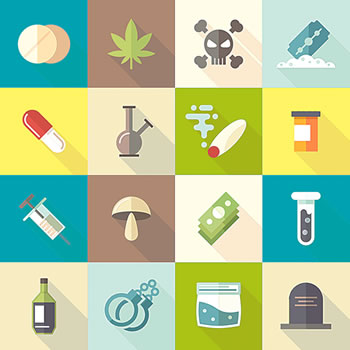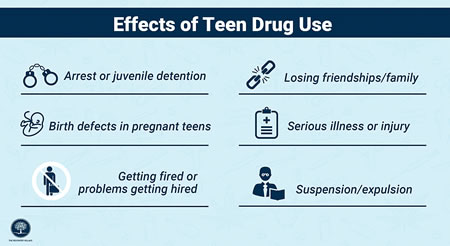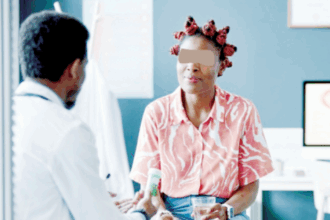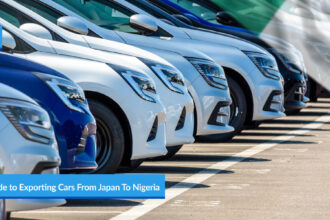Drug has become the food that fuels many Nigerian youths despite awareness campaigns and preventive measures emplaced by the government. ENIOLA OYEMOLADE, using interviews with drug users, government agency, medical personnel and rehabilitation centres, x-rays the reasons behind the increase in abuse as well as what can be done to curb the menace.
He had no hesitation when he was told a reporter would like to interview him. Looking disheveled, skinny and haggard, 29-year-old Fatai (surname withheld), who is a baker willingly told Nigerian Tribune about how his voyage into the world of drugs commenced.
“Yes I use drugs, Tramadol to be specific. My friends at work introduced me to it because I was always tired and dull at work. They seemed active at the job and they confessed to me that they used Tramadol and if I was also interested, I would be okay.
““I started with 200g of Tramadol, then 100g of Tramadol was not expensive, it was just N100. It’s a capsule. Ever since I started it, I’ve not stopped. I can’t do without it. Even if I don’t eat, I must use it, in fact, I prefer it to food, because when I use it, I don’t feel hungry, I just keep drinking water.
“Most people, however, don’t know that whatever drug you choose must be favourable to your body, which is why when some people use some drugs, they begin to roll on the floor, vomit and fall sick. You just have to get the type that works for you.

“The first time I used it, I noticed I did not pee at all, then my friends told me it was the Tramadol effect and I had to use it to do a tedious job. I did the job well and I did not sleep.”
He added that it is a must for him to use Tramadol every day or else, he would get sick. “There was a time I was sick, so I went to stay with my brother who must not know I was into drugs. I was admitted and that way, I couldn’t get the Tramadol. “Surprisingly, everything they gave me proved non-effective because I had not taken my daily Tramadol. I had to call one of my friends who helped me to get it and after I used it, I was okay.
“Aside from the fact that Tramadol makes me work harder, it gives me inspiration. It also makes me bold. At that moment, I can talk to anybody and I can do anything.
On whether he has plans of quitting, he said, “it’s hard to say because one can say he wants to quit and at the end of the day, he won’t be able to because of addiction. One can even fall sick for a long time because one is used to it.”
It is no news that ever since most of these drugs were banned from being sold at pharmacies, they have been difficult to get. But he said, “Yes, they ask for doctor’s report when you want to buy it, especially when it’s a young guy, but there was this patent medicine store we used to tip then, so the day we asked him if he could get the drugs for us, he could not say no.
“Now, I use 800g. If another person uses the same 800g, it can affect him, he can even die, but that is what I use. A sachet of Tramadol costs like N1,200.”
Another 25-year-old user named Tobi (surname withheld) said when he started, he just wanted to get the high feeling, and just like Fatai, no day passes by without him taking ‘Loud’, ‘SK’ or ‘Crack’.
On when he plans to quit, he said: “I don’t even have any plan of stopping, just like I didn’t have any plans to start when I did. If I’ll stop, it’ll come naturally just like how I started.”
Interestingly, he added, “taking drugs does not affect one’s life negatively; it only helps you in whatever path you choose. I’ve smoked with lawyers and even doctors before.
“Local weed is the local one while SK is the one that is dried with chemicals. SK is more expensive.”
Sadly, drug abuse cuts across the gender divide. Janet (surname withheld) became addicted to tramadol consumption while she was in secondary school in Lagos. She attended one of the schools administered by one of the security outfits. According to her, “Although I am in the university today, I am addicted to tramadol intake. While I was in secondary school, we were severely punished whenever we contravened the rules of the school. Whenever we knew we would be punished, I like others would quickly swallow tramadol so as to be able to withstand the pain while been dealt. This has affected me today.”
A 34-year-old man, who was caught at a joint by the National Drug Law Enforcement Agency (NDLEA) few months ago, said his case was that of peer influence as he was introduced to ‘weed’ by his friends at the age of 20.
“I was arrested at a joint by NDLEA when I went to buy weed. My parents were informed and I started this rehabilitation four months ago. The experience has been okay and I have stopped completely,” he said.
Efforts by the National Drug Law Enforcement Agency (NDLEA)
The story of Fatai, Tobi and many others out there illustrate the serious substance addiction issue many young men and women are facing across Nigeria. This is why when the National Drug Law Enforcement Agency (NDLEA) was established by the promulgation of Decree 48 of 1989 (now CAP N30 LFN 2004), it was for the sole purpose of exterminating illicit drug trafficking and consumption in Nigeria.
According to medical experts, substance abuse, also known as drug abuse, is the use of pharmaceutical products, mostly illicit, in illegal way. Some of these substances or drugs are for particular ailments. They have prescriptions and durations, but abuse sets in when the user goes beyond the normal prescriptions.
Mutiyat Okuwobi, Public Relations Officer (PRO) of the National Drug Law Enforcement Agency (NDLEA), Oyo State Command, lamented the rise in substance abuse despite all being done.
“Globally, drug abuse increases by the day and Nigeria is not left out. The only thing that can be done is to bring it down to the barest minimum with efforts being made by communities, individuals, families, states and the nation at large.
“The reasons for this increase are not far-fetched. First, these people have the ‘get-rich quick’ syndrome. They want to get rich by all means at the detriment of others. If a bag of marijuana is purchased at N10,000, when it gets wrapped, it can increase to N25,000. Same goes for cocaine, once the courier puts it in the body and travels with it, that’s money too. They believe it’s a quick way of getting money.
“Second is the availability of marijuana. It can be grown anywhere, therefore, it is easy to get. Some people also say they want to be bold and free and they believe drugs can help them. Some others want to be like their role models. They want to be like Fela, Bob Marley, Olamide and Naira Marley. They don’t know that these artistes manage themselves well and they are focused but the followers just want to be like them at all cost, following them blindly.
“Some people also say they want to be bold and free and they believe drugs can help them. Some others want to be like their role models. They want to be like Fela, Bob Marley, Olamide and Naira Marley. They don’t know that these artistes manage themselves well and they are focused but the followers just want to be like them at all cost, following them blindly.
“Some also take drugs because of peer pressure or because of circumstances like unemployment, not realising that substance taking does not solve any of these issues. People that use these drugs have where they get them, they definitely don’t get them at the pharmacies.”
She added that the major substance abused by people is cannabis (marijuana), popularly called weed, which can be grown anywhere, even at people’s backyards.
“Marijuana grows within 3-6 months and it can be grown anywhere. It is illegal but one way or the other, they get the seed. As of this day, marijuana is still an illegal drug in Nigeria.
“Other conventional drugs are cocaine, heroin, LSD and vitamins. They are controlled and they must not be found in anyone’s possession, either trading or keeping it. Anyone found with it is liable to conviction in the court of law.”
Why cannabis remains most used—UNODC
According to the United Nations Office on Drugs and Crime (UNODC), in Nigeria, among every four drug users, one is a woman and cannabis is the most commonly used drug, followed by pharmaceutical opioids, mainly tramadol. Findings show that an estimated 10.8 per cent of the adult population (about 10.6million) had used cannabis in the past year and the average age of initiation of cannabis use among the general population is 19 years.
In the North-Central zone, cannabis, cough syrups (containing codeine) and pharmaceutical opioids (e.g tramadol) are the three groups of substance with high prevalence.
The prevalence of cannabis use in the North-East zone is lower than national estimates, whereas the use of opioids, ecstasy and non-medical use of cough syrups is higher than the national estimates.
The North-West zone has the largest population of all the geo-political zones in Nigeria. The use of cannabis and non-medical use of opioids and cough syrups are the most common in this zone.
In the South-East zone, Imo state has the prevalence of any drug use exceeding the national estimates.
The South-West zone has a high prevalence of drug use driven primarily by Lagos and Oyo states. The past year prevalence of cannabis use was particularly high in the zone with an estimated 2.7 million past year users.
It’s difficult to clear off banned drugs—Pharmacist
According to a pharmacist, Olorunsusi Stephen, one has to first understand the difference between pharmacies and patent medicine stores/vendors.
“Pharmacies are retail shops which provide prescription drugs while patent medicine stores/vendors are the ‘chemist’ shops around. They can’t sell prescription drugs; they only sell Over The Counter (OTC) drugs, which are normal everyday drugs such as anti-malaria drugs and paracetamol.
“Some of these drugs that have been banned are, however, not banned from pharmacies because they are needed, but only based on prescription. The patent medicine stores/vendors cannot sell these prescribed drugs because they are not supposed to have them, for instance, Tramadol.
“However, the patent medicine stores still sell these drugs in shady ways. They don’t display them but when someone wants to buy it, they call them inside to give them.
“The problem is it is always difficult to clear off some of these banned drugs from the markets such as Alaba Market and Idumota Market. Somehow, they are still able to gain access to these drugs. They know how to hide them from NAFDAC when they go to check them.
“Another issue is in some pharmacies, there are no pharmacists, you only see sales boys or girls, so when people go to them without prescription, they sell because these sales boys and girls don’t know about any banned drugs, they just know they have the drugs so they should sell them to make money.”
Do rehabilitation centres work?
Most times, people who are considering rehabilitation centres want to be sure that treatment will be successful. They want proof that a treatment plan will help them stop using drugs forever.
Recovery 66 Foundation, a Non-Governmental Organisation owned by Francis Oluwole Akinlolu, uses education to prevent several types of addiction such as drugs, alcohol, gambling and sex addiction. Rehabilitation centres truly work “if the treatment and rehabilitation program are managed by competent staff with support from family and friends. The individuals also have to be ready and determined to change from their unhealthy life styles.”
Launched in May 2018, Recovery 66 Foundation also endeavours to reintegrate back into the society prisoners with drug offences.
“We advise the public and private sectors on health matters and at the moment, we are focusing more on prevention of drug abuse and harmful drinking. We embark on drug abuse and wellbeing awareness campaign for schools, parents and general public.”
Akinlolu added that when an addict is brought to them, there are specific treatment plans that are normally followed. While answering a question on what exactly is done for the addicts, he said, “Detoxification is often managed with medication. For opioid addiction, medication such as methadone, buprenorphine is used to prevent withdrawal symptoms. For alcohol addiction, medication like chlordiazpoxide is used for alcohol detoxification, to stop the withdrawals.
“We also make use of psychosocial intervention. This use of counselling helps individual to resolve their ambivalence. Also, 12-step facilitation therapy model uses self-help groups thereby promoting abstinence involved Alcohol Anonymous (AA) and Narcotic Anonymous (AA).
“In addition, the rehabilitation centre provides care 24 hours a day. This is a long term residential treatment. It includes vocational activities, educational and other supportive services.”
Going forward
Sensitisation is very important when it comes to drug abuse. This is why the NDLEA and various Non-Governmental Organisations try to talk to substance users and even non-users, letting them know the dangers associated with it so they can desist from it.
According to Mutiyat Okuwobi, the strategy is to cut off supply to dealers and buyers through raid operations to joints.
“We dislodge the joints and for the traffickers, we try and arrest them and take them to court for prosecution. This serves as deterrent for others who are wishing to go into it or those who are already into it. Jail term for drug-related offences ranges from six months to 15 years, depending on the kind of drug being trafficked.
“Sensitisation, however, should not be left only in the hands of the government. We are all stakeholders in this, from the traditional rulers to the communities to the churches and mosques.
“The public should note that we do brief intervention here at NDLEA. We counsel drug users and rehabilitate them.”








